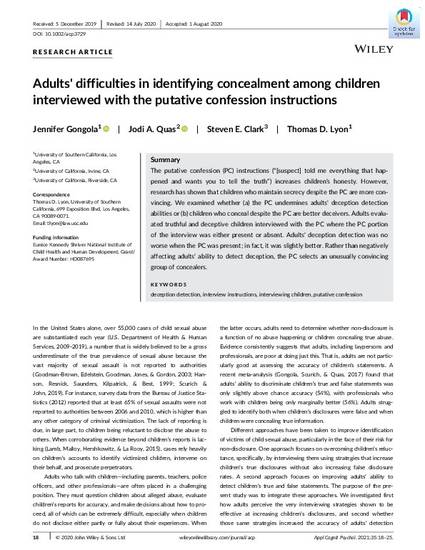
Article
78. Adults' difficulties in identifying concealment among children interviewed with the putative confession instruction.
Applied Cognitive Psychology (Published 2021)
(2020)
Abstract
The putative confession (PC) instructions (“[suspect] told me everything that happened and wants you to tell the truth”) increases children’s honesty. However, research has shown that children who maintain secrecy despite the PC are more convincing. We examined whether (a) the PC undermines adults’ deception detection abilities or (b) children who conceal despite the PC are better deceivers. Adults evaluated truthful and deceptive children interviewed with the PC where the PC portion of the interview was either present or absent. Adults’ deception detection was no worse when the PC was present; in fact, it was slightly better. Rather than negatively affecting adults’ ability to detect deception, the PC selects an unusually convincing group of concealers.
Keywords
- Identifying concealment,
- child abuse,
- child testimony,
- child neglect,
- putative confession,
- children interviewed
Disciplines
Publication Date
Summer August 3, 2020
Citation Information
Gongola, J. Quas, J.A., Clark, S.E., & Lyon, T.D. (2021). Adults' difficulties in identifying concealment among children interviewed with the putative confession instruction. Applied Cognitive Psychology, 35, 18-25.
